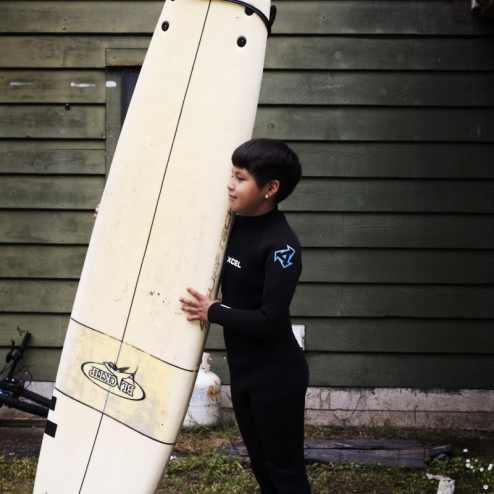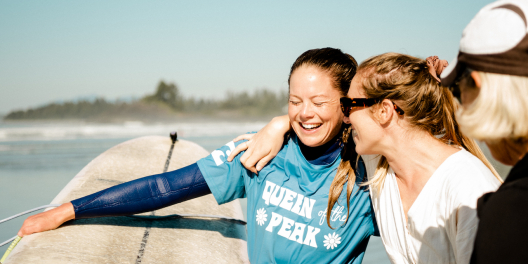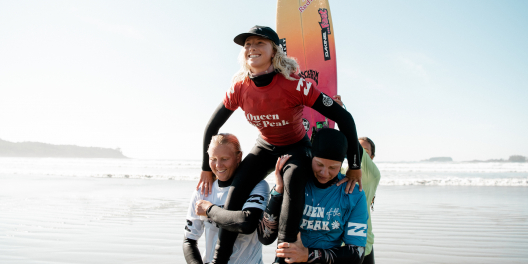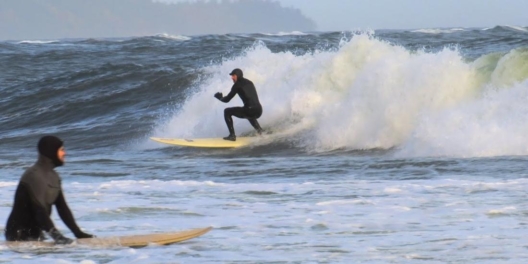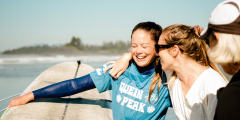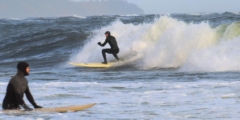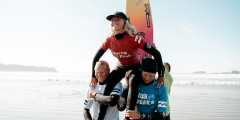Mulaa, The Rising Tide Surf Team, is a non-profit society that decolonizes surfing. And it needs your support.
Surfing originated in Hawaii, an indigenous activity that celebrated fun and skill. The late Duke Kahanamoku, a native Hawaiian, was a competitive swimmer who popularized surfing at Honolulu’s Waikiki Beach. Without a doubt, it’s an indigenous activity.
When it comes to surfing, Tofino is Canada’s version of Honolulu. It’s called the ‘surfing capital’ of Canada. And it’s located within Nuu-chah-nulth’s traditional territory.
Yet until recently, few Tla-o-qui-aht or other Nuu-chah-nulth people have participated in surfing.
They lacked access to instruction, culturally safe educational environments, and quality surf equipment.
Rising Tide aims to get more indigenous youths onto surfboards and riding the waves at Chesterman’s Beach, Cox Bay and other popular surf spots.
According to the society’s mission statement, the “Surf Team is an Indigenous and community-led initiative, bringing together Nuu-chah-nulth youth and mentors who want to change the narrative around surfing in Nuu-chah-nulth territory.”
Team members are provided wetsuits, surfboards and instruction. They also receive support and mentorship to build confidence and strengthen their connection to nature, the ocean and their peers.
However, The Rising Tide Surf Team survives exclusively on donations.
A GoFundMe campaign is nearing a fundraising target of $15,000 to help pay for surf gear rentals, instruction, post-surf snacks and other supports.
To help out or learn more about this campaign, check out Rising Tide Surf

